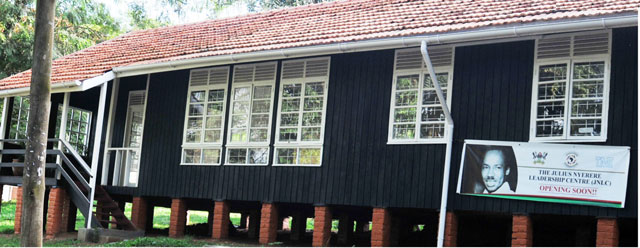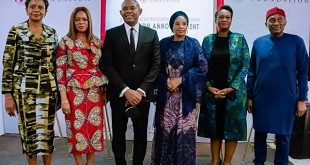
Ujamaa, translated as family hood, became known across Africa as a unique version of African socialism which advocated for communalisation of the work force and collectivisation of the means of production. Ujamaa won the hearts and minds of young African students who were studying at Dar-es-Salaam University in the 1960s like Yoweri Museveni.
Ujamaa also became a political philosophy that some African leaders admired and tried to implement in their countries.
Although Ujamaa as a policy had marked failures in Tanzania, Museveni has seemingly been willing to overlook them and focus on the national and Pan Africanist outlook of Nyerere.
Tanzanians, both in the ruling party Chama Cha Mapinduzi and in opposition, have found a way to look past the abject failure of Ujamaa as a policy aimed at economic national development and instead celebrate Mwalimu Nyerere for his vision, unifying actions and leadership.
In 2017, Museveni hinted about the opening of a Nyerere centre and in 2018, he commissioned the Julius Nyerere Leadership Centre with a lecture.
According to Muwanga, the centre will provide an annual lecture, leadership and democratic training together with research studies.
Prof. Tarsis Kabwegyere, who was the convener of the Nyerere-backed Moshi conference held in March 1979 to remove then-Ugandan President Idi Amin from power, says both Museveni and Nyerere are patriots and Africanists.
“I believe both Museveni and Nyerere are first patriots, and they are Africanists who have contributed to the emancipation of the African people.”
Kabwegyere says of Nyerere, “There was a genuine effort by Nyerere who was determined to pursue Amin out of power. He is unsurpassable.”
“Similarly, Museveni has committed himself to Uganda and the region. You cannot erase the contribution he has made in uplifting the image people have of the African continent.”
Nyerere the constructionist
Kabwegyere says Nyerere was more of a “constructionist” unlike Museveni who inherited a failed state. “Nyerere fought and defeated colonialism unlike Museveni who inherited a failed state beyond the colonial state.”
He says Museveni had a bigger problem to deal with because of the collapsed economy. On the other hand, Nyerere has been adjudged as someone who stifled the Tanzanian economy.
“When he started socialism, it took a bit of time to see it work and the economic growth was a bit slow,”Kabwegyere said of Nyerere.
Kabwegyere speaks more on Nyerere’s creation of national unity in Tanzania. “He created a Tanzanian identity, there are not too many African leaders who excelled in that area. There were many chiefdoms he got rid of. Obote did it in a rough manner.”
When he delves into the different approaches of Museveni and Nyerere, Kabwegyere says the revival of kingdoms which happened under Museveni and their growing autonomy is a contrast among the two leaders. Museveni revived the kingdoms in the 1990s as a way of winning over a constituency Obote had alienated when he banished the Kabaka in 1966.
“Buganda wants a federal status and so do the other small kingdoms. The building process becomes tricky because you create identities more than the state can manage,” Kabwegyere says.
Yoga Adhola, a contemporary of Museveni during the days of Front for National Salvation (FRONASA), a revolutionary movement formed to fight Amin in 1971, in his writings, says he realised that it was Uganda Peoples Congress (UPC) and not FRONASA which was engaged in the struggle for national-democratic liberation.
He says the realisation compelled him to leave FRONASA and return to UPC. “UPC had been engaged in the struggle for national-democratic liberation. By that was meant as a movement to eliminate national and colonial oppression (to say nothing of winning economic independence and the attendant tasks of socio-economic progress) as well as mold the nation of Uganda. It also was a movement of breaking up feudal and pre-feudal relations.”
According to Adhola, this was the difference between Nyerere and Museveni although Museveni wanted his FRONASA outfit to be modelled on the ideals of Nyerere.
In an article titled, ‘The erroneous political line of Yoweri Museveni’ Adhola writes, “As a matter of fact the 1966 revolution brought the character of UPC as a national-democratic liberation movement into focus, as the party clearly demonstrated itself as a movement for social progress. It eradicated the feudal tendencies as well as other obsolete pre-capitalist factors that hinder progress.”
The general consensus in Uganda is that some of Museveni’s actions today would possibly make Nyerere, his hero, turn in his grave. Not only has Museveni amended the constitution at whim, he has been accused of turning Uganda into a haven of multinational capital that has upended every socialist ideals he may have admired and wanted to emulate in Mwalimu Nyerere.
On the other hand, President Museveni has made a career castigating his predecessor, Milton Obote, who was closer to Nyerere both literally and figuratively.
****
 The Independent Uganda: You get the Truth we Pay the Price
The Independent Uganda: You get the Truth we Pay the Price



I really dont see any ideological similarities between Nyerere and my M7.The only time there seems to have been a convergence was when M7 had just come to power(the years 1986 to 1990s till around 1994).The divergence begins to straighten out when M7 trades back on his earlier promises and positions,today the differences are in black and white,so clear.
Let’s accept it,Nyerere is with Mandela,Castrol and those guys that really worked to promote their countries,used the same products they built and moved on even when they couldn’t complete 80% of their objectives but realised that time and integrity mattered most.
Other than hailing from same region and working together to oust Idi Amin, and marginalizing opposition parties in their countries, I don’t see any similarities between the two.
Perhaps another near similarity is that Mwalimu Julius Nyerere influenced Museveni on no opposition politics which Museveni admired so much but perfected it.
Those who see similarities are swing illusions of M7 of yesterday. He has presided over corruption, nepotism, militarism, materialism, separatism _ each clan own district, deception, deterioration in morals etc. Uganda after him is a doomed enterprise. Nyerere left a promising enterprise
Mwalimu Nyerere was a true son and a for Africa. He embraced humility, modesity, incoraptivity and love for all mankind. He was indeed a firm leader. Any similarity with M7… Doubtful!!
You are right Mr . Nyerere was very unique. It is almost blasphemous to try to compare him with M7 or Magufuli. Mwalimu’s leadership skills and charisma were superb.